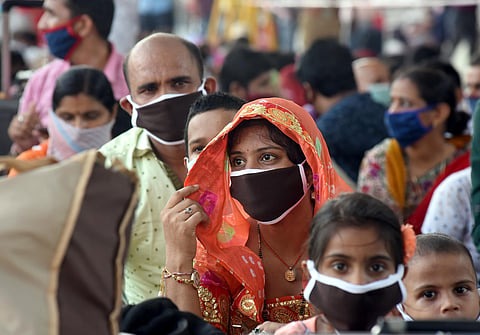

NEW DELHI: Around 80 per cent of workers did not have access to government rations between May 15 to June 1, said an analysis by Stranded Workers Action Network on Friday.
This analysis was on the basis of 821 calls-- which corresponded to over 5,900 migrant workers -- received by the network between May 15 to June 1. Over 55 per cent people placed SOS calls saying that they had no money or rations left, and that they had skipped meals. This was an increase since the second phase of the lockdown.
While 76 per cent of those who called said they had less than Rs 300 left with them, 72 per cent of people said they had Rs 200 left with them. In the absence of any livelihood options, workers were pushed in to debt with 48 per cent of workers having taken loans between Rs 2,000 to Rs 5,000 and 30 per cent of workers having taken loans of more than Rs 5,000 since the beginning of the lockdown.
With lack of cash, food and income security, 55 per cent of those stranded at wanted to go home immediately. Seventy-five per cent of those who remained stuck at different places said they had migrated for work but had no employment.
Among the interviewees who had reached home, 44 per cent of the workers said they reached by buses and 39 per cent took Shramik trains. While 11 per cent took trucks or other modes of transport, six per cent of workers made it on foot, showed the analysis.
The woes of migrant workers captured by the SWAN report range from eviction by house owners and employers, uncertainty of travel to issues in seeking shelter and travel registration.
In several cases, workers reported no prior information about trains, poor accessibility to water and food in trains, no availability of trains from smaller trains and between certain locations, paying bribes for travelling, walking in despair in lack of other options, and tedious and costly journeys, according to the report.